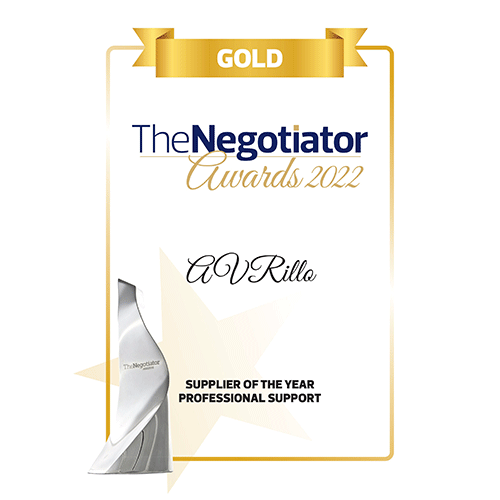

and start saving money now
and start saving money now
Get a FREE Conveyancing Quote
Award-Winning Conveyancing Lawyer in Burton, East Staffordshire - AVRillo Conveyancers
We understand the importance of having an experienced conveyancing lawyer working on your behalf. That's why we only work with highly qualified legal professionals who have many years of experience under their belts. This ensures that you always get the best advice for all your property needs.
Residential Conveyancing Services in Burton, East Staffordshire - We Make Your Move Safer, And More Secure
 We offer free no-obligation quotes within 24 hours.Conveyancing is a broad field. There are lots of different things to take into consideration when buying or selling a property. The more information you give us about your home search, the better you prepare for your move.
We offer free no-obligation quotes within 24 hours.Conveyancing is a broad field. There are lots of different things to take into consideration when buying or selling a property. The more information you give us about your home search, the better you prepare for your move.
That's why we provide you with free no-obligation quotes within 24 hours. You don't have to commit to anything until you've had time to think it over.
When you're searching for a new place to live, you need someone you can trust. That's precisely what you'll get when choosing AVRillo Conveyancers for residential conveyancing. We'll be there every step of the way, offering support and guidance throughout the process. Our fees are competitive.Buying or selling a home is an expensive and stressful event. AVRillo Conveyancers charges reasonable prices without compromising quality, making us one of the affordable conveyancing firms in the UK.
Our fees are competitive.Buying or selling a home is an expensive and stressful event. AVRillo Conveyancers charges reasonable prices without compromising quality, making us one of the affordable conveyancing firms in the UK. We keep your information confidential.Confidentiality is one of the essential things in law. When hiring professionals, you should expect that any documents that you sign will remain private.
We keep your information confidential.Confidentiality is one of the essential things in law. When hiring professionals, you should expect that any documents that you sign will remain private.
When buying or selling a home, the last thing you want is your details becoming public. By signing confidentiality agreements, we promise not to use or share any information you provide to us. In turn, you get peace of mind that your sensitive information will remain private.
At AVRillo Conveyancers, we treat our clients' details with utmost care. All information received by our team is kept strictly confidential. This means we won't disclose it to third parties. Your information is protected from prying eyes and hackers.No information you send us ever leaves our office premises. We always aim to provide excellent customer service.One of the attributes of a professional law firm is the type of customer service they offer. Here at AVRillo Conveyancers, we work very hard to ensure that all our clients receive outstanding customer service. To improve upon this, our staff members are fully trained to respond quickly to all requests. As soon as you contact us, we'll be there whenever you need us. This includes providing free online chat sessions if required.
We always aim to provide excellent customer service.One of the attributes of a professional law firm is the type of customer service they offer. Here at AVRillo Conveyancers, we work very hard to ensure that all our clients receive outstanding customer service. To improve upon this, our staff members are fully trained to respond quickly to all requests. As soon as you contact us, we'll be there whenever you need us. This includes providing free online chat sessions if required.
So far, our clients have given great feedback concerning our level of customer service, including:
• 95% would recommend us.
• 99% were satisfied with the service provided. We're easy to find.We understand how difficult it can be to find a good conveyancer in Burton, UK. We've been doing this for over decades, so we know exactly what you need from a legal advisor.
We're easy to find.We understand how difficult it can be to find a good conveyancer in Burton, UK. We've been doing this for over decades, so we know exactly what you need from a legal advisor.
You may come across other firms who try to sell their services for unexpected fees. AVRillo Conveyancers does not charge exorbitant fees for its legal services. Our fee structure is based on the value involved in the process of your property transaction. This way, we ensure that you only pay for what you need. We communicate clearly throughout the whole process.Understanding conveyance is not easy. The more you research about it, the more confused you might become. That's why when it comes to communicating with you, we take the time to explain everything adequately.
We communicate clearly throughout the whole process.Understanding conveyance is not easy. The more you research about it, the more confused you might become. That's why when it comes to communicating with you, we take the time to explain everything adequately.
During each step of the process, we'll answer all your questions.
We understand that conveyancing isn't straightforward. So we'll never leave you in the dark or tell you things without explaining everything well. If something seems unclear, we'll ask you to reword it until it makes sense.
To help you through every step of the property transaction, we communicate well and thoroughly. You can count on us to explain everything you need to know about the process, including the pros and cons of each option available to you. We also take the time to answer any questions you might have. Our legal adviceIt is important. You probably want to research before hiring someone. But most people don't have the time or resources to do this. That's why when it comes to choosing a solicitor, you often end up getting poor advice. At AVRillo Conveyancers, we strive to help our customers avoid situations like this.
Our legal adviceIt is important. You probably want to research before hiring someone. But most people don't have the time or resources to do this. That's why when it comes to choosing a solicitor, you often end up getting poor advice. At AVRillo Conveyancers, we strive to help our customers avoid situations like this.
Because of this, our team of conveyancing experts provides expert legal advice. This helps you choose the best possible option for your situation. This also means that whatever advice you get, you will be able to trust it. We provide transparent pricingWhen it comes to conveyancing, clarity is vital. The last thing you'd want is for your solicitor to quote a high price for something that's going to cost less than that. Some solicitors even go as far as charging extra when things aren't explained well enough.
We provide transparent pricingWhen it comes to conveyancing, clarity is vital. The last thing you'd want is for your solicitor to quote a high price for something that's going to cost less than that. Some solicitors even go as far as charging extra when things aren't explained well enough.
At AVRillo Conveyancers, we pride ourselves on being transparent and open about how much money you should spend on your conveyance. Our prices are always upfront and transparent. We don't charge you anything unless you hire us. This ensures that you make the right decision on whether to hire us or not. Our fees are fixed and affordable. There is no hidden fee. And because our rates are competitive, you will save money. We're committed to making your life easier.When buying or selling your house, you want to be able to rely on the advice and support of someone with a proven track record, someone who has been there, done it before.
We're committed to making your life easier.When buying or selling your house, you want to be able to rely on the advice and support of someone with a proven track record, someone who has been there, done it before.
If you're looking for a professional, trustworthy and experienced law firm, then look no further!
Your home is one of the most significant investments you could make, so it's essential to protect it from harm. This applies to both your financial investment and emotional attachment to your home. For this reason, the conveyancing process is very complicated. However, by choosing AVRillo Conveyancers, you don't have to worry about the legal details.
Recent Reviews
Conveyancing in Burton, East Staffordshire: FAQs
How long does it take?
Depending on different factors, your conveyance may take between 60 days to 3 months to complete. But it’s worth bearing in mind that this is usually only if you’re using a traditional solicitor. Because many clients prefer a more flexible approach, the whole process of conveying your property could take under a few weeks.
Even so, here at AVRilloConveyancers, we work hard to ensure that all the paperwork required to finalize your purchase goes quickly.
Is it safe?
Yes. The majority of conveyances across England take place without incident. However, some issues might arise during the process, which is why, when purchasing or selling your property, you must always take the services of a qualified conveyancer. They’ll help you avoid common pitfalls and complications when buying a family home or other type of property.
We use different ways to ensure that your conveyance is secure. For example, we send you copies of everything you need. All information is kept confidential.
Can I choose how my property is transferred?
Although most people would assume that they’d inherit their grandparents’ land after them, this isn’t necessarily the case. Land ownership can also pass by means other than inheritance, such as through cohabitation or partnership.
In these cases, the new owner will need to complete a separate deed of conveyance.
How much will it cost me?
The exact price for a conveyance depends on numerous factors. These include the value of the property being sold, the number of people involved, the type of property, whether or not there are any special conditions attached to your transaction, and so forth. It’s impossible to provide a definitive figure.
It would be best if you discussed the total costs with your chosen conveyancer. This way, you can make sure that you’re fully aware of what’s going to happen. And you can budget properly.
Can I keep my existing mortgage?
Unfortunately, this isn’t possible. The lender will look to recoup money when transferring property by taking the outstanding balance out of the sale proceeds.
This is because mortgages are secured against the property itself. In theory, the bank could seize the house if the borrower fails to repay his loan.
Who owns my equity?
Equity is the difference between the market value of your home and the amount you still owe on your mortgage. Equity can be used to borrow more money against the property. However, you’ll only be able to use it once your debt has been cleared.
After paying off the existing mortgage and fees, your remaining balance of funds should go into your name. This is known as ‘your equity.
What happens if I don't pay my mortgage?
If you fail to pay back your loan, the bank will have the right to repossess your property. If this occurs, the bank will sell the property and apply the proceeds towards the outstanding balance.
You won’t lose your home. Instead, you’ll become a tenant until the bank sells the property and pays you the money owed.
When does the transfer start?
Your conveyance begins when you sign the contract. You’ll receive an official copy of the document within two weeks.
Once you’ve signed the agreement, the conveyancer will begin preparing all the necessary paperwork. This includes ensuring that the title deeds are ready to hand over and that the correct legal documents are filed at the appropriate authorities.
Your conveyancer will then contact the relevant authorities to register the change of ownership. This usually takes around three months.
Once the registration is completed, the conveyancer will send you a copy of the certificate. This shows which parties were responsible for the changes made to your property. Your original documents will remain with the conveyancer.
Will I get a bill from the conveyancer?
No. A fee will be charged upfront for each transaction. There may even be additional charges depending on how long the process takes.
However, it’s important to remember that many conveyancers offer free initial consultations. They will explain everything in detail and help you decide if you want to proceed.
Should I choose one particular conveyancer?
That’s entirely up to you. Some lawyers may charge higher rates than others. But they should be upfront about their prices and ask if you’d prefer them to work on a fixed-fee basis.
How much am I likely to owe?
Again, it isn’t easy to give a precise figure because you’ll vary from person to person based on various factors.
Most conveyancers quote based on hourly rates. This means that a larger deposit might result in a higher overall cost. So, you might want to consider the size of the deposit required before committing yourself.
Are there any hidden costs associated with a conveyance?
Yes. When you move home, you’re also moving out of the rental market. As such, landlords may increase the rent or refuse to renew the lease.
As well as losing potential revenue, tenants are also liable for any arrears and fees. These could include rent protection insurance, council tax, water rates, etc.
To avoid problems, make sure you tell your landlord in writing that your new address has changed. If he disagrees, then he could take further action without notice.
Can I do anything to stop a conveyance?
If you wish to postpone the sale of the property, you must notify the selling agent. In most cases, this involves providing extra security. Once you’ve done this, the conveyance will be put on hold.
It’s worth noting that some agents will automatically postpone your sale if they receive a letter from your solicitors.
Why have so many people switched to online conveyances?
With online conveyancing, you need to log into the company’s website using your email address and login details. After you complete the form, it’ll instantly appear as if someone had logged onto the site. The solicitor will then enter your data into the system and submit the documentation. All you need to do is confirm the final documents once they arrive via email. You can access documents whenever you like by logging back into the site and clicking on ‘My Documents.’
- 24 / 7 Online Tracking
- Call Surgery
- Online Payment
- Quote App
- Our Team & Careers
- Conveyancing Today
- Get in touch
- Cheap conveyancing solicitors
- Online conveyancing quote
- Find a conveyancing solicitor
- Solicitors for house buying
- Residential Conveyancing
- Property Conveyancing
- Solicitor Costs For Buying a House
- House Conveyancing
- Conveyancing Guide
- Conveyancing Solicitor
- Residential Solicitors
- Conveyancing




















